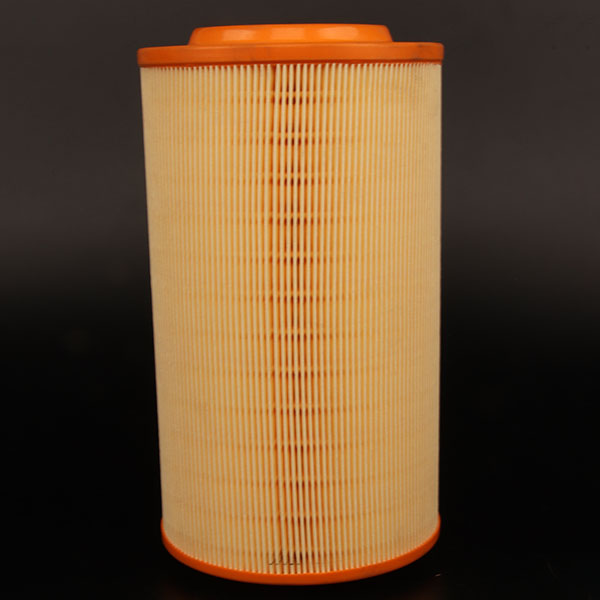nov . 22, 2024 07:30 Back to list
filter materials
The Importance of Filter Materials in Modern Filtration Technologies
In an increasingly industrialized world, the need for effective filtration technologies has never been more critical. From air and water purification to industrial processes and pharmaceutical manufacturing, filter materials play a vital role in ensuring the quality and safety of various products and environments. This article explores the significance of filter materials, their types, applications, and future trends.
Understanding Filter Materials
Filter materials are substances or structures that remove impurities from a fluid (liquid or gas) by employing physical, mechanical, or chemical processes. The choice of filter material directly impacts the efficiency and effectiveness of the filtration process. Key properties that influence this choice include porosity, permeability, chemical resistance, and particle retention capability.
Types of Filter Materials
Several types of materials are commonly used in filtration applications, each suited for specific purposes
1. Fibrous Materials Fibers, such as those made from glass, cellulose, or synthetic polymers, are widely used in air and liquid filters. Their structure allows for high surface area, which enhances particle capture.
2. Membrane Filters These are thin layers of material that allow certain particles or molecules to pass while blocking others. Membrane filters are crucial in applications like microfiltration, ultrafiltration, and reverse osmosis, where precise separations are required.
3. Activated Carbon Known for its high surface area and porous structure, activated carbon is effective for adsorbing impurities such as volatile organic compounds (VOCs) and chlorine from water and air.
4. Ceramic Filters Durable and resistant to high temperatures, ceramic filters are often used in industrial applications where corrosive substances are present. They are effective at removing bacteria and particulate matter.
5. Composite Materials These combine various properties of different materials to enhance filtration efficiency. Composite filters often exhibit improved mechanical strength and chemical resistance.
Applications of Filter Materials
The applications of filter materials span various industries
filter materials

- Water Treatment In municipal and industrial water treatment plants, filter materials are essential for removing contaminants, ensuring clean drinking water, and protecting ecosystems
.- Air Quality Management In both industrial and residential settings, filter materials help reduce airborne pollutants, allergens, and particulate matter, improving indoor air quality and public health.
- Pharmaceuticals Filter materials in the pharmaceutical industry are used for sterilization and ensuring the purity of products, safeguarding consumer health.
- Food and Beverage Filtration is crucial in the food industry, where filter materials help remove impurities and pathogens, maintaining product quality and safety.
Future Trends in Filter Materials
As technology advances and environmental concerns grow, the development of filter materials is evolving. Some notable trends include
1. Nanotechnology The integration of nanomaterials into filter design is enhancing filtration efficiency. Nanofibers and nanoparticles can target smaller contaminants, improving performance in air and water purification.
2. Biodegradable Filters With increasing awareness of environmental issues, researchers are developing biodegradable filter materials to reduce plastic waste and environmental impact.
3. Smart Filtration Systems The incorporation of sensors and automation in filtration systems allows for real-time monitoring and adjustment of filtration processes, improving efficiency and usability.
4. Enhanced Recycling New methods for recycling and reusing filter materials are being explored, promoting sustainability in filtration practices.
Conclusion
In summary, filter materials are integral to numerous applications that impact public health, environmental conservation, and industrial productivity. As we navigate an era of technological advancement and growing environmental concerns, the development and optimization of filter materials will continue to play a crucial role in ensuring a cleaner, safer world. From traditional materials to cutting-edge innovations, the evolution of filtration technologies is set to advance, addressing pressing challenges in our society.
-
Cheap PLJY109-500 Full-Auto HDAF Expanded Mesh Spiral Coiling Machine - High Efficiency & Quality Manufacturer
NewsJul.08,2025
-
Best PLHJ-6 Full-Auto Eco Filter Rotary Heat Plating Machine - High Efficiency & Eco-Friendly Solution
NewsJul.08,2025
-
High-Efficiency Paper Pleating Machine for Filters Trusted Filter Paper Pleating Machine Company
NewsJul.07,2025
-
High-Performance Oil Filter for Cadillac ATS – Reliable Engine Protection Solutions
NewsJul.07,2025
-
High Quality PU Glue for Filters – Reliable Filter Glue Supplier & Exporter Get PU Glue Quotes Now
NewsJul.07,2025
-
China PLJL-4 Seal Leakage Tester for Spin-On Filter - High-Precision Multi-Station Testing Solutions
NewsJul.06,2025
